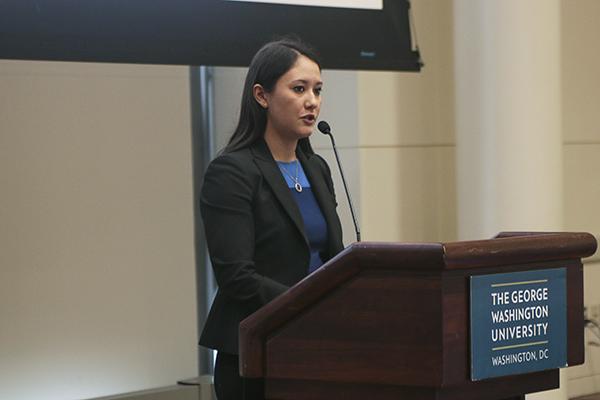The University announced a timeline to launch a long-anticipated peer support hotline last week, but questions still remain on the details of the program.
Officials are now accepting applications from student volunteers and the program, titled GW Listens, will officially start next fall. The call center will likely be open three to four nights a week, one of the students leaders running the program said. But other details like what training sessions will include and how many student volunteers will be in the program have not been announced.
The applications opened a month after the head of GW’s counseling center resigned once officials learned he was not licensed to practice psychology in D.C.
Chris Evans, the director of health and wellness on the SA, said he hopes to have the call center open on Sunday nights, when students are catching up on homework, looking ahead to often packed schedules and most likely feelings of stress.
Evans said GW Listens creators tried to mirror programs at two other colleges, the University of Pennsylvania and Columbia University, which both have hotlines open every night. The University of Pennsylvania’s hotline has been open for nearly two decades and volunteers receive 40 hours of training to participate.
GW Listens is expected to be open about half the time as those model programs, but Evans said creators expect the hours to fluctuate.
“Some of the schools that we looked at, their line rings a couple of times a month and that’s it. It’s a good thing that people are not necessarily needing to call in, but they have somewhere to call,” he said. “GW doesn’t right now.”
Evans said volunteers will work with callers in tandem, but the line will be staffed by students of different ages to make sure they can give the best advice.
“If you have someone who is calling, homesick, and they haven’t been able to find a group on campus, then talking to a sophomore on our team would be better since he just went through that and would be able to relate to that better,” he said.
Student Association President Andie Dowd, who ran on a platform that prioritized wellness last spring, said the training sessions will last the entire semester so volunteers are equipped with not just conversational tools, but a means to make every call “a productive conversation.”
“Every single aspect of the trainings includes everything that may come up during a conversation that the students need to be aware of and know how to handle,” she said. “They’re making incredible strides. We’re excited to see that.”
Senior Associate Dean of Students Mark Levine is overseeing the development of the program alongside student leaders. He said it was too early to comment on what the training sessions will look like, how many undergraduate and graduate students the program plans to hire and whether or not freshmen next year will be able to apply.
Levine also declined to comment on details of conversations with SA leaders and whether GW’s Peer Educator Program, a three-credit course to train undergraduate and graduate students on mental and physical health, will be part of GW Listens.
SA leaders made mental health one of their main priorities over the past two years, after three students died by suicide on campus in 2014. Evans said he talked with then-president Nick Gumas at a vigil for one of the students, and knew they had to help if they could.
“Nick and I started talking after one of the candlelight vigils about how people weren’t just going home saying, ‘Oh, I hope this doesn’t happen again,’” he said. “They were going home wanting to know what they could to make sure that it didn’t happen again.”
This month GW added a fall break to next year’s schedule, which SA senators said would help mitigate stress about midterms in the middle of October.
Victor Schwartz, the medical director at the Jed Foundation, said peer counseling hotlines can “fill a gap” for offering support around the clock, but students still need to have easy access to professionals. Peer support systems are meant to play more of a mentoring role and cannot replace professional counseling, he said.
“They might be at a simple level of going to an older brother or sister or trusted friend, but sometimes you don’t want to connect with someone who knows you, but someone who is in your social universe and may get those things from your perspective,” Schwartz said.
But peer counseling can be the first step on the way to seeking professional counseling. Hotline volunteers should be able to assess when a student’s problems are suited for a counseling professional, he said.
“You have to make sure you’ve trained people sufficiently that they can distinguish between when something is in their range of expertise versus when something needs to be sent to a professional,” Schwartz said.
Rohan Shah and Max McCrory contributed reporting.







